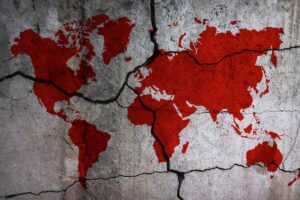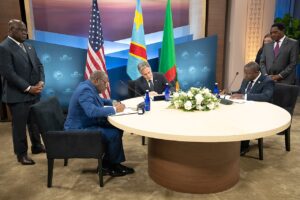The United States should restrain its impulse to wield its military and economic power in a coercive way and do so only when essential to advancing its security and prosperity. Restrictions on trade, in particular, are injurious to US prosperity, and inconsistent with US values of openness, and policy makers should, therefore, impose them only when necessary to safeguard US security. When addressing global or regional challenges, the United States should expect to have a seat at the table, but not always at the head of the table. Americans should not presume to be the primary actor in every region of the world. US power is finite, and strategic objectives must be aligned to available resources. US policy makers should prioritize, act with humility, take account of other states’ legitimate interests, and be prepared to compromise. US officials should recommit themselves to upholding the principles and norms that are broadly conducive to global peace and prosperity—and expect to face resistance if they fail to do so.
Read the full publication at the Atlantic Council.




